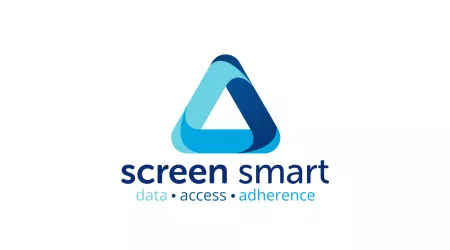45 is the new 50, but we still have work to do
The United States Preventive Services Task Force (USPSTF) has lowered the colorectal cancer screening age to 45. This means all people at average risk should be screened starting at age 45. And people at higher risk may need to be screened even earlier according to their risk factors.
While more than 20 million additional people will be able to get a preventive colorectal cancer screening, most at no cost, this change will not catch every colorectal cancer. We still have work to do.
What work do we still have left to do?
Even as we celebrate the lower age to start colorectal cancer screening, we know there is more to do in our mission to save lives from this preventable disease. You can:
Hold your insurer accountable. It takes time for new policies to be applied. Call your insurance company and ask them if they have updated their policies with the new screening age. If not, understand their timeline for implementing and hold them accountable. You can help make sure so no one who is eligible for a screening is denied.
Contact your State’s Department of Medicaid. Just like other insurers, it takes time for change to happen. But for state Departments of Medicaid there is more. They need to let their Medicaid members know they are eligible for screening.
- Ask about their plans to raise awareness of screening
- Ask what policies are in place to ensure on-time screening happens
- Ask how you can help in your local community to support on-time screening every time
Talk to your national representatives about the gaps in funding colorectal cancer research. We need to know why some groups are hit harder than others. More importantly, we need to know what works to close gaps in the death rates from colorectal cancer. We know it starts with improving access to on-time screening and ends with timely, high-quality, and effective treatment.
Address the inequalities between racial and ethnic groups. Blacks have the highest rates of colorectal cancer of any racial/ethnic group in the U.S. They are both 20% more likely to get colorectal cancer and 40% more likely to die from the disease than non-Hispanic whites. American Indians/Alaska Natives also have extremely high rates of colorectal cancer. And when you break out Alaska Natives by themselves, they have the highest overall rate of colorectal cancer cases and deaths.
Some of the reasons why these disparities exist:
- Differences in access to early detection and receipt of timely, high-quality follow-up colonoscopies and treatment after diagnosis
- Systemic racism that has led to reduced access to care and mistrust of the medical system
- Implicit bias within healthcare – meaning attitudes or stereotypes that affect healthcare providers’ understanding, actions, and decisions in an unconscious manner
- Presence of risk factors for colorectal cancer like smoking, obesity, and other diseases
- Cultural attitudes toward colorectal cancer and screening practices
Become an Alliance volunteer. We are always looking for partners to raise awareness of this disease and screening options, as well as to serve as allies to patients. There are many ways to get involved. Fill out our volunteer application today!
Top resources

National Cancer Prevention Month: Majority View Encouraging Screening as an Act of Love
Americans increasingly view colorectal cancer screening encouragement as an act of love, with new survey data showing rising openness about lifesaving prevention.

Katie Couric Joins the Colorectal Cancer Alliance To ‘LEAD FROM BEHIND’
Katie Couric joins the Colorectal Cancer Alliance and Ryan Reynolds’ Maximum Effort to expand LEAD FROM BEHIND, a star-powered campaign breaking stigma and urging lifesaving colon cancer screening. Colon cancer is the preventable cancer.

20+ Colorectal Cancer Alliance Screen Smart Partners Encourage Secretary Kennedy to Uphold USPSTF Goal to Improve Health
The Colorectal Cancer Alliance and more than 20 Screen Smart partners urge HHS Secretary Robert F. Kennedy Jr. to protect USPSTF’s evidence-based process and no-cost preventive screenings like colorectal cancer screening, which save lives and improve national health.





